The Lowdown on Israeli Supermarkets
One thing that’s always good to know, when you’re planning a perfect vacation in Israel, is where to buy groceries, toiletries and any other items you suddenly find you’re without. Whether you’re staying in a hotel and just want to pick up a couple of things whilst you’re on a day out, or you’ve chosen private accommodation and decide upon eating meals at home, getting the lowdown on the amenities in your area is essential. And that goes, especially for Israel.
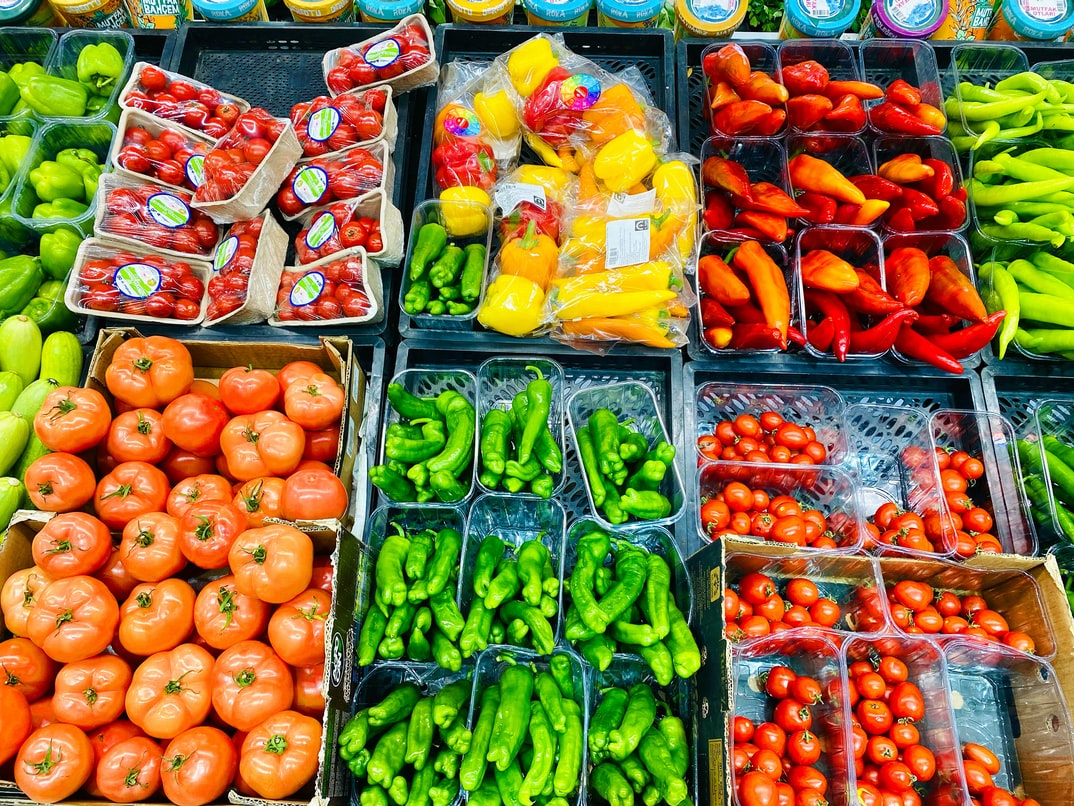
Fresh fruits and vegetables at the supermarket. Photo by Dilek Altay on Unsplash
In this article we’re going to be looking at supermarkets in Israel - from the cost, the produce they stock, whether or not the food being sold is kosher, the hours they’re open, how you can pay, and extra services they might provide (such as home delivery). Luckily for tourists, over the years Israel has become very international so Israeli supermarkets have never been more interesting, in terms of the products they stock.
First things first…cost! Israel supermarket prices
The first thing we need to state - unfortunately - is that Israeli supermarket prices are not cheap. Tourists from around the world often gasp, the first time the checkout cashier hands them a receipt. Some say this is because Israel has an ‘island economy’ and others argue that it’s because of lack of competition and cartels at work but, whatever the answer, be prepared to put your hand in your wallet, particularly if you’re in the heart of Tel Aviv.
Arguments are raging in Israel about the high cost of living, as this goes to print, and the government keeps promising to intervene, but the public isn’t convinced. As things stand, anything imported will cost you dearly (think European cheese and American pancake mixes) and even dairy products (Israel has a big dairy industry) can be eye-watering. But if you’re savvy and willing to look around, you can keep the cost down somewhat, which we’ll explain more about below.
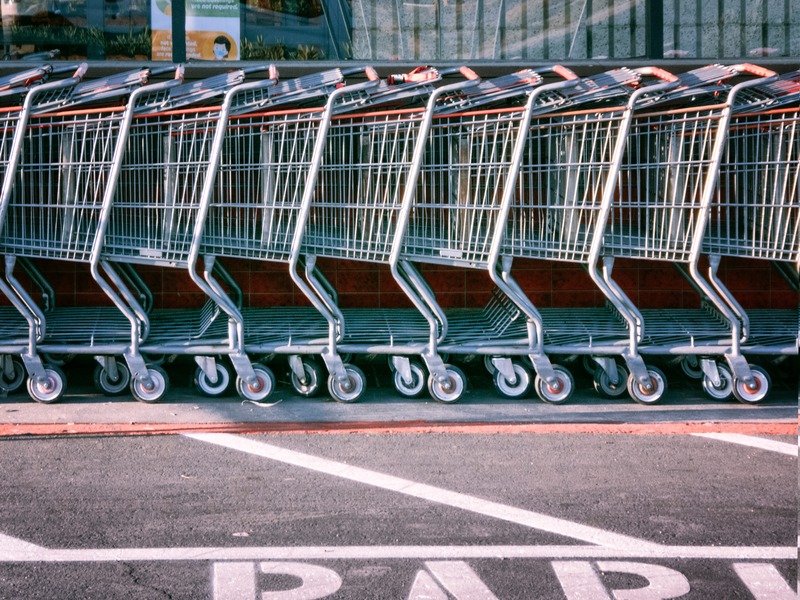
A line of shopping carts. Photo by Donald Giannatti on Unsplash
Do Israeli supermarkets accept American dollars?
As a rule, none of the Israeli supermarkets accept US dollars (or euros/pounds) but the good news is that credit cards are welcome everywhere, and even Apple Pay in places like the Victory supermarket. And of course, paying by cash is no problem either - you’ll find ATMs from various banks in towns and cities across Israel (all with English options on their screens).
“Is it Kosher?”
If an Israeli supermarket is kosher is a big deal for many observant Jews and this means more than one thing in Israel. Firstly, for a supermarket to be kosher it needs to have certification from a rabbinical authority. Secondly, it cannot be open from Friday afternoon to Saturday evening (as this would violate the Jewish Shabbat). And thirdly, it can only sell products that have been produced in a certain manner (i.e. wine that has been overseen in its making, meat that has been slaughtered according to Jewish ritual law).
To explain it in the most simple form, religious Jewish dietary laws prohibit the eating of certain foods (most famously pork and shellfish). Moreover, they will never sell ready-made produce where milk and meat have been mixed (e.g. chicken parmesan, cheeseburgers). So if you’re a fan of shrimp, parma ham, or pork sausages, you’re going to have to head to one of the non-kosher stores (many of which are found in Russian neighborhoods or big cities like Tel Aviv and Haifa).
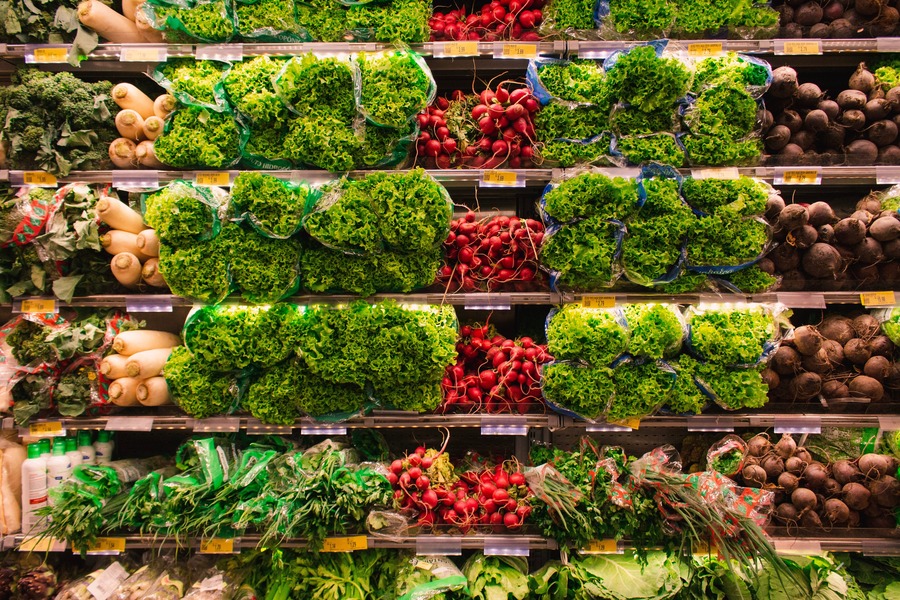
Greens and vegetables in the supermarket. Photo by Matheus Cenali on Unsplash
“How Much?!” - From the Cheap to the Expensive
When you come to Israel, you’ll need plenty of patience, sunscreen, and money. We are not joking. Tel Aviv was recently voted the World’s Most Expensive City (surpassing Zurich, Paris, and Singapore) and even if you eschew hotels for self-catering, you’ve still got to eat. Luckily, competition has grown in the last few years, so if you’re happy to compare prices and maybe shop at a store a little further away from you, it will help your wallet.
Cheap Supermarkets in Israel
Rami Levi - this chain of stores claims to reduce the price of your basket by up to 20%, compared to many of its rivals, and many regard it as one of the cheapest supermarket choices in Israel. Rami Levi offers attractive prices, regular promotions and has even introduced a ‘Digital Wallet’ which offers a fast and convenient way to be given further discounts and benefits.
Victory - operating 20 discount stores in Israel, here you can buy food, toiletries, and sometimes clothing and leisure products. They also operate a number of neighborhood grocery stores. Yeinot Bitan - this family-owned Israeli supermarket chain has around 250 stores in Israel. It sells affordable food and household goods. Osher Ad - this Israeli supermarket has great prices and is great if you’re buying in bulk or have a large family to cook for. For this reason, it’s popular with religious families, who tend to have more children.
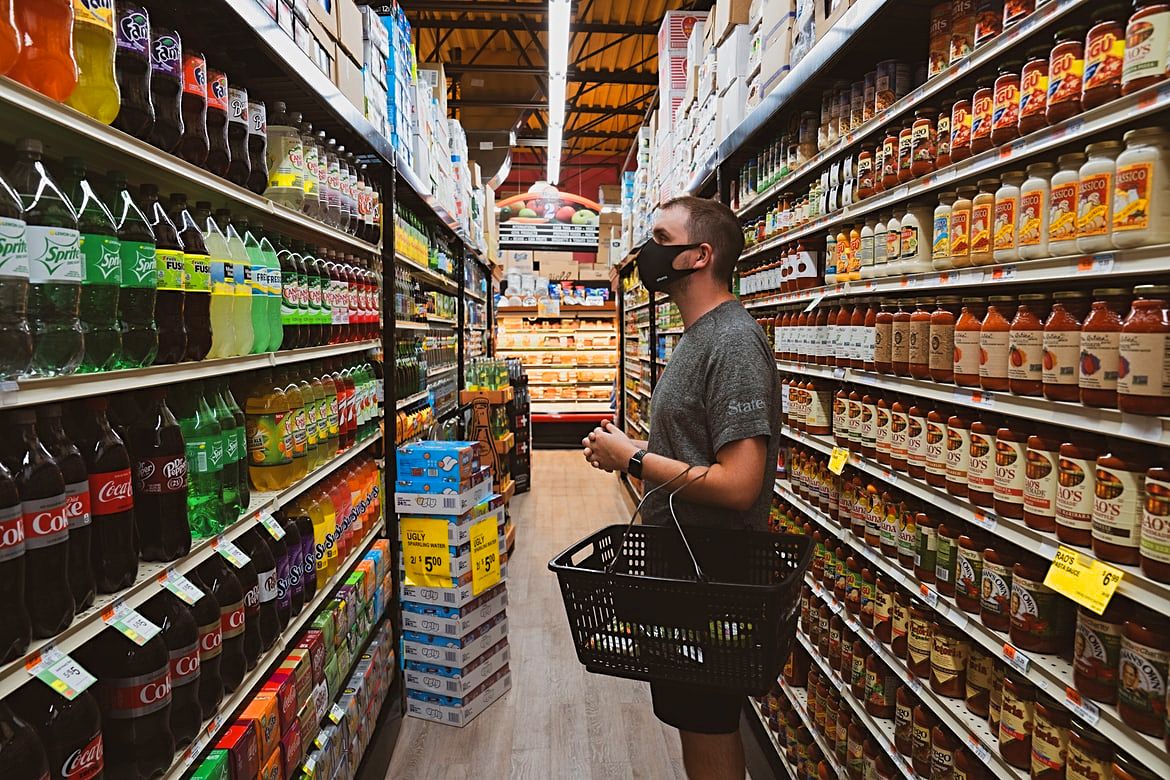
A man in a supermarket. Photo by Atoms on Unsplash
Expensive Supermarkets in Israel
Shufersal - Shufersal (or ‘Supersol’ as most people refer to it) is the largest chain of supermarkets in Israel and sells everything you can imagine and more. Both in-store and online, you can pick up staples, specialty food products, electronics, cosmetics, and even furniture for the home. Look out for their smaller outlets, called ‘Supersol Sheli’. It is closed on Shabbat.
Tiv Tam (aka “In the City’) - this upmarket chain caused a stir when it became the first supermarket to sell pork in Israel, as well as staying open on the Jewish Shabbat and major Jewish holidays. You’ll find branches of them all over major cities and they often stock specialty items (Madeleines from France, American salad dressing, Italian balsamic vinegar).
AM/PM - this supermarket chain is very popular in Israel and, today, has over 40 branches across the country, a few of which are open 24/7 (including Shabbat). If you spend over 300 NIS, delivery is usually free and their website has some English options.
Mega - also operating in the big cities, Mega sells good quality products and has occasional bargains, but it can be costly. Not open on Shabbat.
Waves of peppers in the supermarket. Photo by Jess Torre on Unsplash
Closed or Open on Shabbat?
In much of the country, but particularly in Jerusalem (where many of the locals observe the Shabbat strictly) supermarkets will be closed. If you want to buy groceries, a good option is to head to the Old City, where the Muslim Quarter is bustling on Saturdays (stores in the Christian Quarter will also be open).
Not only can you pick up all kinds of fruits and vegetables, but you can also stop at one of the hummus joints, for a healthy local lunch. In Tel Aviv and Haifa (which are, respectively, more secular/mixed) you’ll find open supermarkets, particularly Tiv Tam and AM: PM. (These are also places where you can buy non-kosher food).
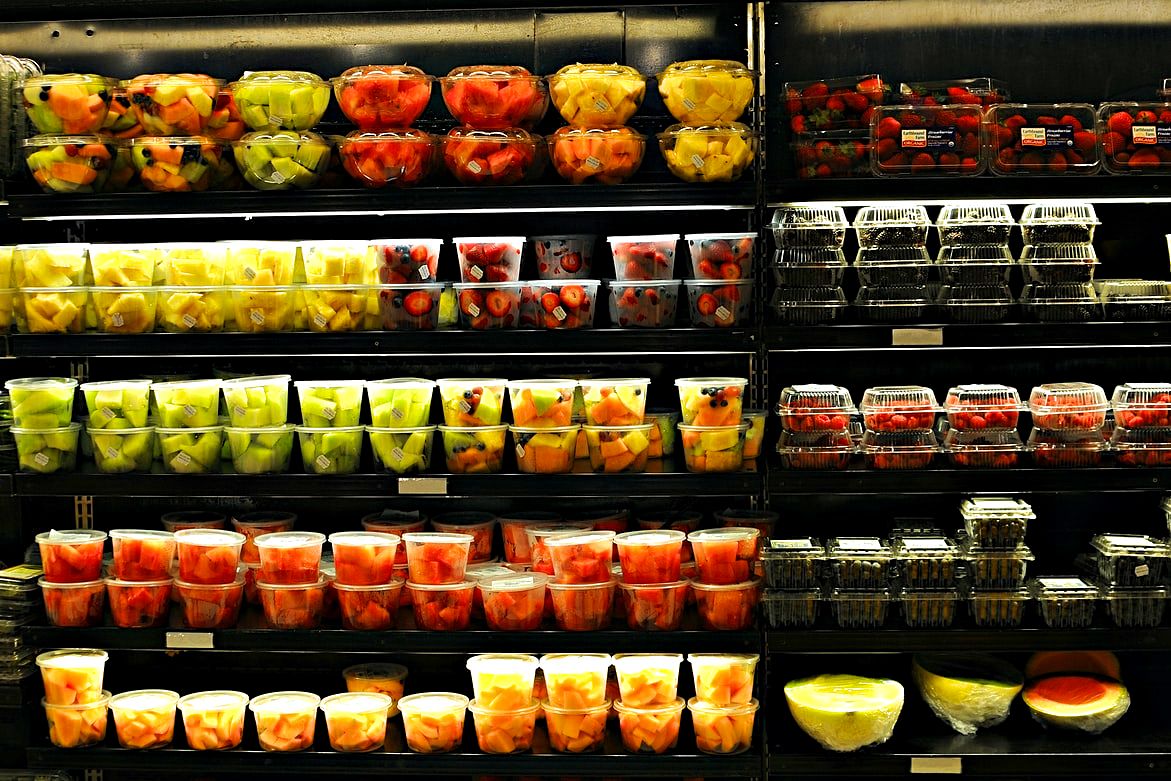
Freshly cut organic fruit in a supermarket. Photo by Oren Elbaz on Unsplash
Vegan and Gluten-free Israeli Supermarkets
The trend towards healthy eating has never been greater than now - Tel Aviv has more vegan restaurants per capita than almost anywhere else in the world and the demand for health food stores has never been higher. So if you’re looking for a vegan or gluten-free supermarket in Israel, we’d recommend:
Teva Kastel - this store began life as a place to buy vitamins, minerals, and dietary supplements but over time it’s expanded, and today you can pick up over 10,000 products there - all-natural and organic. These include dried fruits, crackers, eggs from local farmers, honey, fruits and vegetables, and healthy cereals.
Nitzat haDuvdevan - this is a natural food store chain that has outlets across Israel. In it, you’ll find organic fruits and vegetables, non-dairy products (almond milk, vegan cheese, etc), meat substitutes, natural cosmetics, essential oils, and green cleaning agents. It’s not cheap, but the products are high-quality.
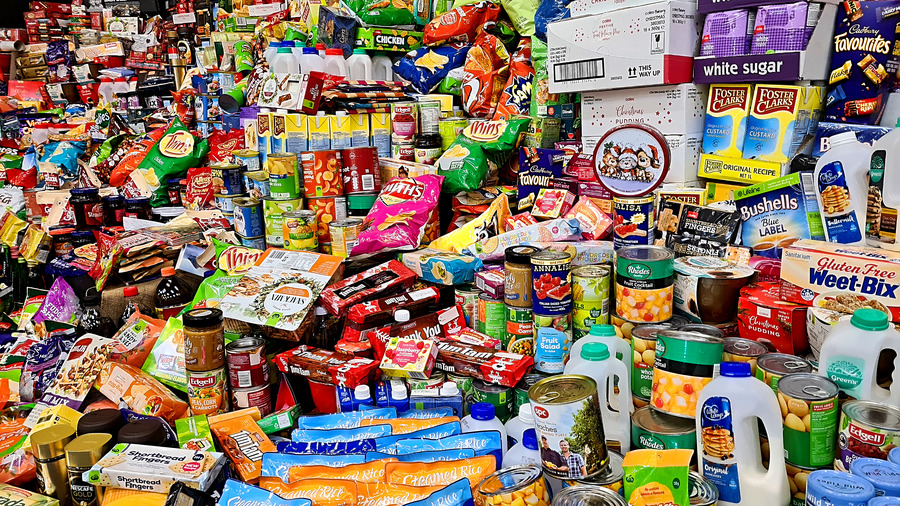
A mountain of groceries. Photo by Nico Smit on Unsplash
Best Supermarkets in Tel Aviv
What’s the best supermarket in Tel Aviv? Well, that very much depends on your specific preferences. If you want something that’s open on Shabbat, we’d have to recommend Tiv Tam, although (as we remarked above) it’s neither cheap nor kosher. If you’re looking for good value, we’d have to recommend Victory or Rami Levi, who have increasing numbers of branches in the non-stop city. However, remember you can’t shop there from Friday at 2 pm until Sunday morning.
Best Supermarkets in Jerusalem
Jerusalem isn’t as wealthy as Tel Aviv, so you’re more likely to find cut-price stores and supermarkets here. Along with the above-mentioned, look out for: ‘Cheaper Kol’ on Kanfei Nesharim 31, ‘Super Cheap’ on Nissim Bachar 37, ‘Super Deal’ on Hebron Road 28.
24/7 supermarkets in Israel
In cities like Tel Aviv (which are very secular) you are going to be able to find the most 24/7 supermarkets - particularly AM:PM, Tiv Tam (In the City), and Super Yuda. In Eilat, there are a few small places that are open through the night, including the 24/7 kiosk called Hakol Dvash at Yotam Street 45. They will always be more expensive than their rivals - you are paying for the privilege of buying ice cream at 3 am!
However, in many parts of the country, the most you’ll be able to find is a convenience store at a garage, or - if you’re in Druze, Arab and Christian areas - local shops at which you can buy all kinds of food and toiletries. Bear this in mind if there’s something specific you want and pick it up before Friday afternoon!
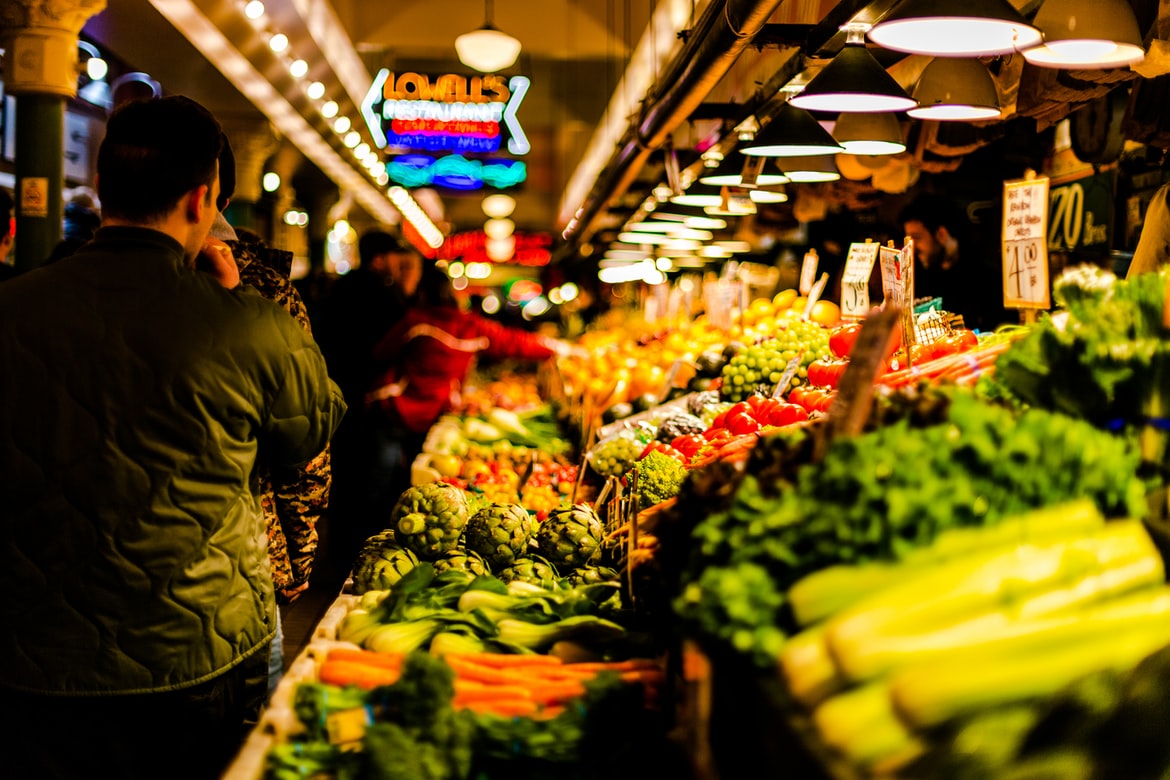
A man in the supermarket at night. Photo by Jordan Madrid on Unsplash
Supermarkets vs Makolets in Israel
The ‘makolet’ is an institution in Israel - it’s a small grocery store/convenience store (as opposed to a full-scale supermarket). It’s often family-owned, and it’s somewhere you can rely on for necessities and newspapers, late at night and often on holidays.
Of course, you’re going to be paying more - these small businesses can’t compete with the big chains. However, they’re open at all hours, stock odd things you might not easily find otherwise and, best of all, you get to make friends with the makolet man (who, because of what he does, knows more about the goings-on in your neighborhood than anyone).
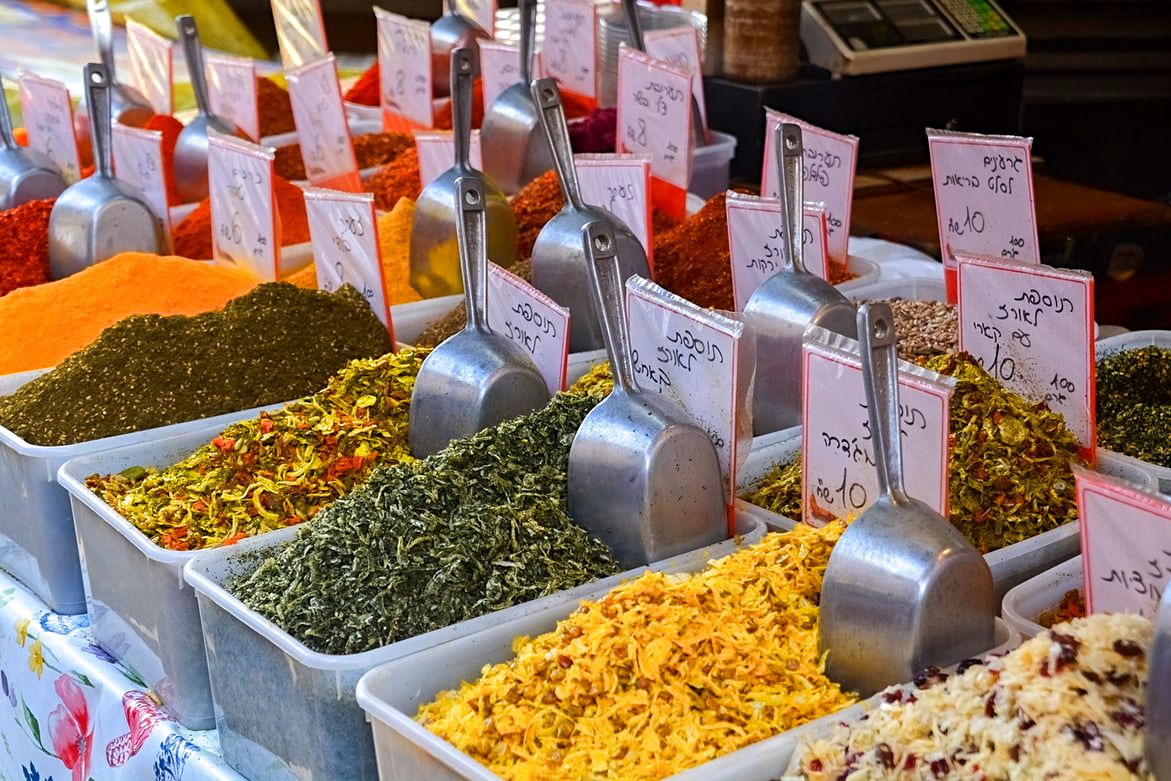
Spices at the Israeli market. Photo by Jeremy Bezanger on Unsplash
Supermarkets vs Open-Air Markets in Israel
Israel has fantastic open-air markets, the most famous of which are the Carmel Market in Tel Aviv and Mahane Yehuda in Jerusalem. For sure, you’ll get great bargains here, and it’s certainly an experience, wandering from stall to stall, listening to vendors yell in Hebrew and Arabic, with music blaring in the background.
Fruit and vegetables in Israel are usually cheaper and a bit fresher here than in supermarkets, since they’re arriving daily and, of course, you get a more ‘personalized’ service. Of course, it’s easier and perhaps more convenient to go to a supermarket than wander in an open-air market - there’s more likely to be parking and a home delivery service.
Personally, we’d advise everyone visiting Israel to make a tour of Carmel market or a trip to Shuk Mahane Yehuda - they’re so much fun, very atmospheric and they’ve also got plenty of bars and cafes where you can grab lunch or a craft Israeli beer.
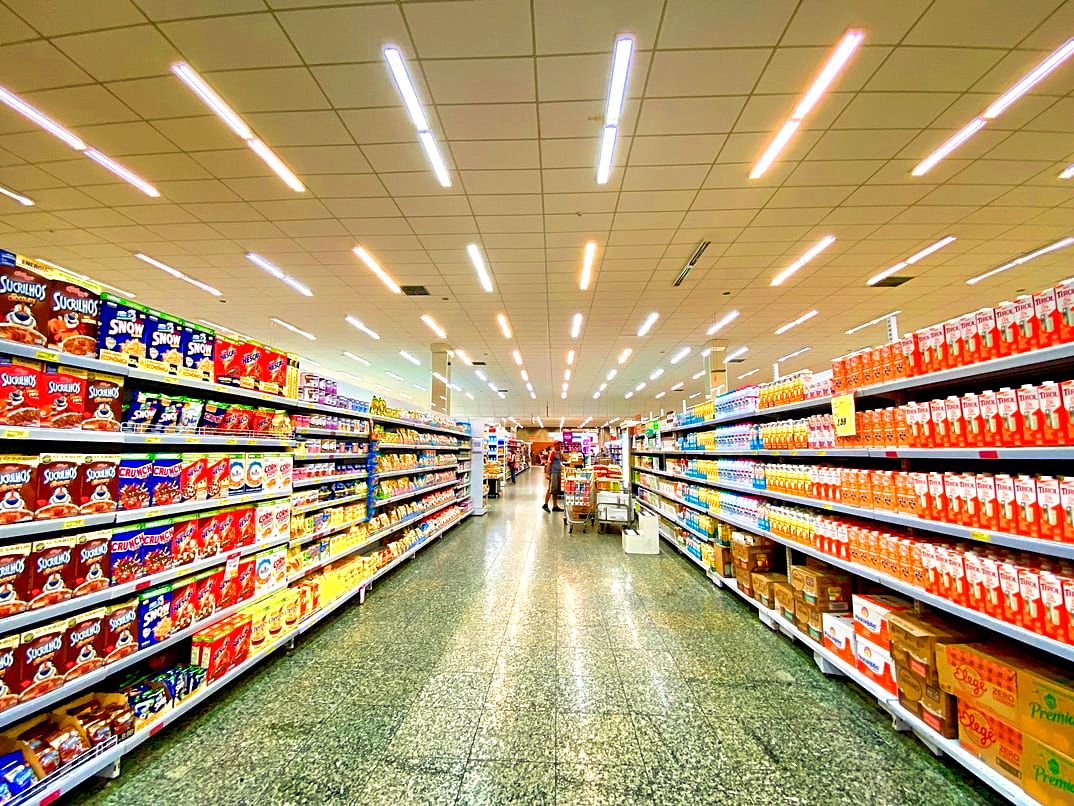
An aisle between rows of shelves in a supermarket. Photo by Nathália Rosa on Unsplash
Online Supermarkets in Israel
In recent years (and never more so since the pandemic) it’s become a real trend to order your shopping online. Supermarket deliveries in Israel, and particularly in Tel Aviv, are easy and convenient to arrange - and there’s usually an option for ordering in English.
Those we’d recommend include Shufersal, Mega, Rami Levi, and Victory, all of which have many outlets around major urban areas. Delivery charges usually range from 15-30 NIS and you can even have your groceries within 4 hours of ordering if you plan things right. It’s not obligatory to tip your delivery guy but it’s definitely a decent gesture, especially if they’ve climbed up lots of stairs! In general, 5-10 NIS is a fair amount.
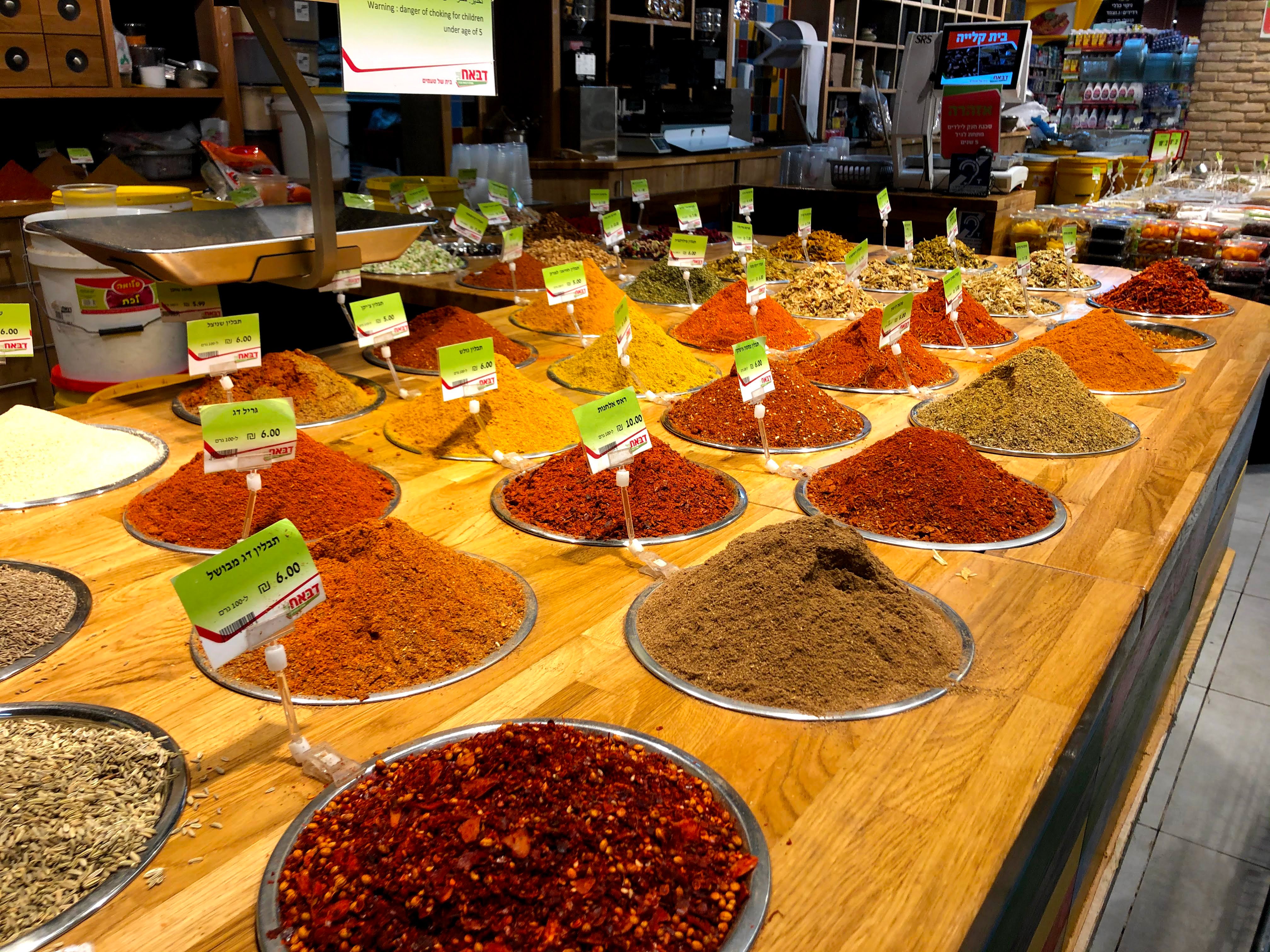
An assortment of spices for sale in an Israeli shop. Photo by Andrew Perabeau on Unsplash
What to buy in Israeli supermarketsIf you’re looking for fresh, local food, then you’ll be delighted. The country’s diet is very Mediterranean, but there are a few things that Israelis love to eat, including: white cheese - Israelis far prefer white to yellow cheese - either cottage or a plain white spread. It’s what every kid eats for supper; olive oil - local brands, especially from the Golan Heights, are bursting with flavor.
You can also buy Bamba - this peanut-flavored snack is beloved by every child in Israel - and many adults are addicted too; halva - made with sesame seed and flavored with pistachio, almond, and vanilla, it’s a low-sugar option for anyone with a sweet tooth; olives - black, green, purple - they’re a staple here, and oh so good; tahini - this toasted ground sesame paste is good served alone or as a dip (mixed with garlic and lemon). Yum.
The tahini sauce. Photo by cleo stracuzza on Unsplash
Souvenirs/Gifts you can buy from Israeli Supermarkets
If you want to take some Israeli souvenirs home, you’re spoilt for choice, and as well as jewelry, clothing, sculpture, and art, there’s food! Presents you can buy in Israeli supermarkets include Medjool dates (traditionally grown in the Arava desert), as well as boutique wines (from the Galilee, the Golan, and Jerusalem), Arak (a traditional anise-flavored spirit), Silan (a date syrup), and locally-sourced honey.
Finally, for chocolate lovers, pick up a few bars of Elite’s ‘milk chocolate and nuts’ flavor - the packaging is very distinctive, with a cow on the front! If you are interested in day tours or private excursions in Israel with the local professional guides, feel free to contact us.
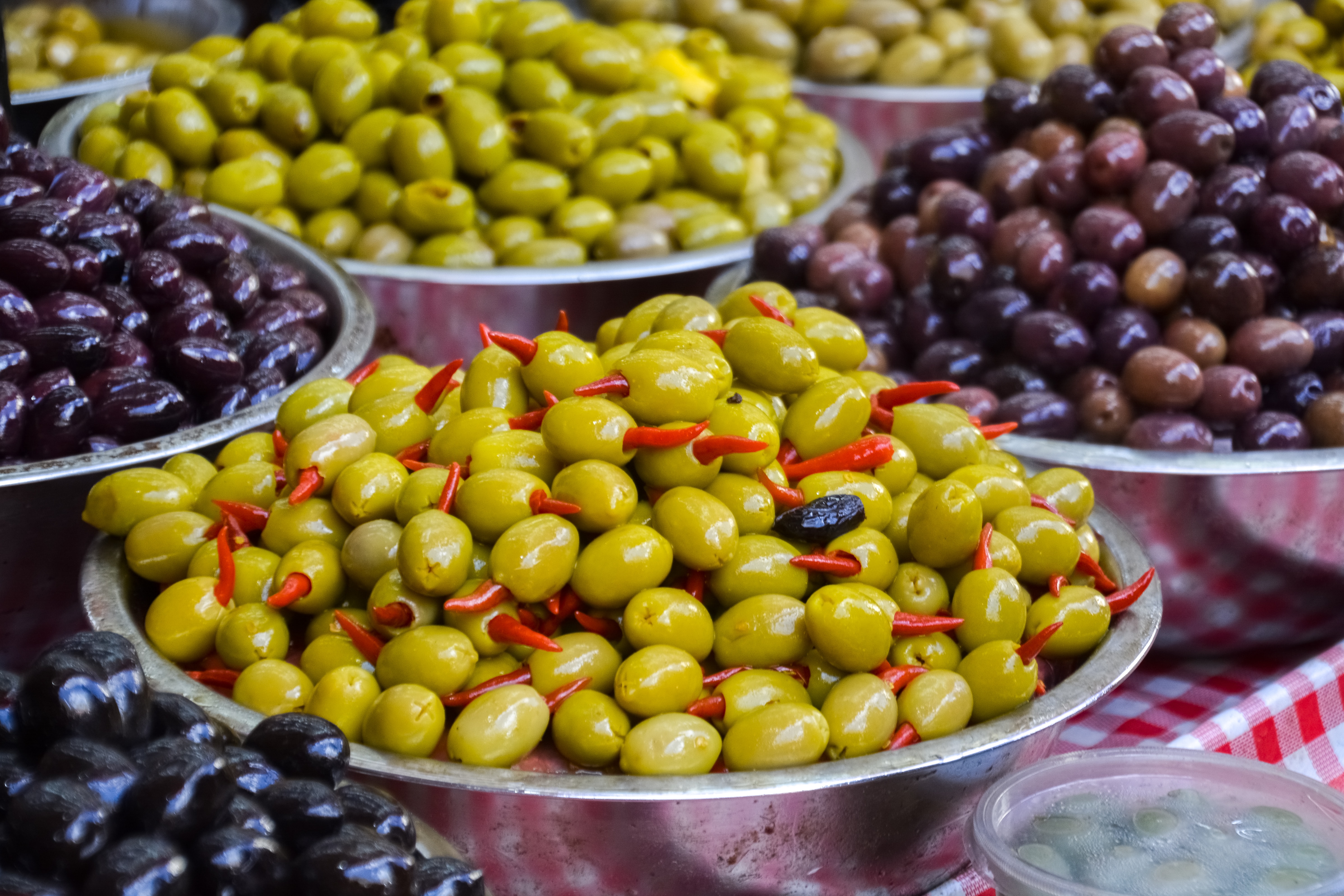
Olives at the Israeli market. Photo by Jeremy Bezanger on Unsplash
 Login / Register
Login / Register
 Contact Us
Contact Us
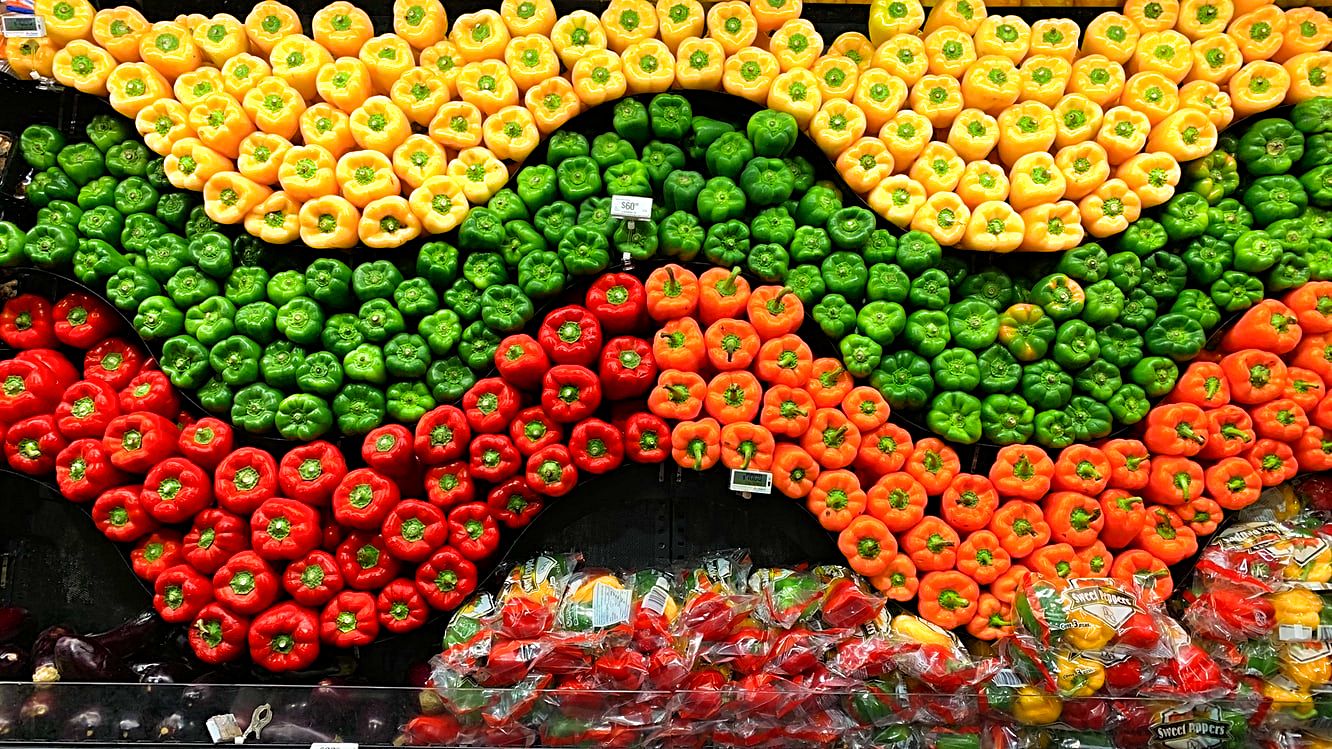
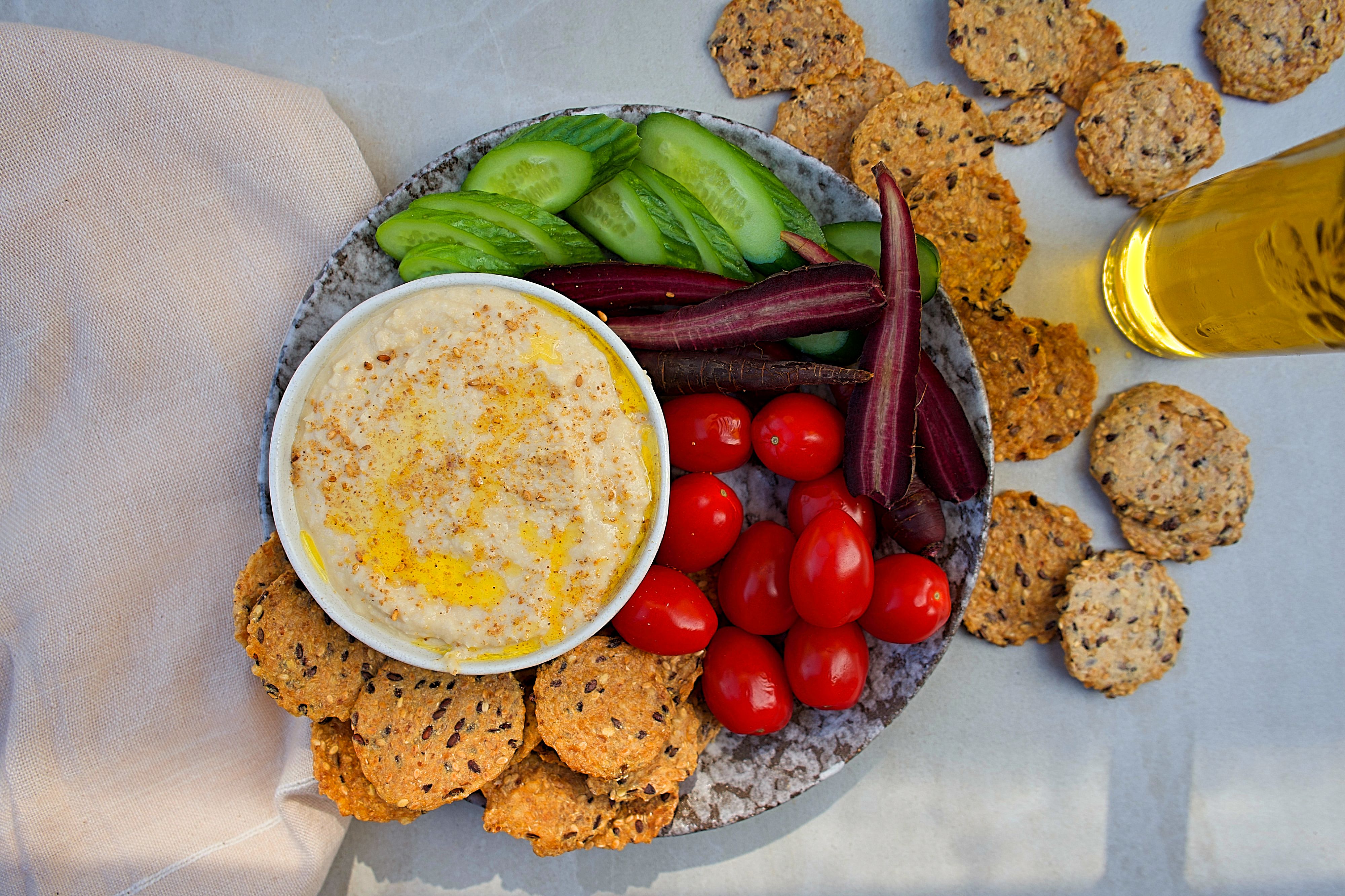
 Certificate of Excellence
Certificate of Excellence Guaranteed Departure
Guaranteed Departure Low Prices Guaranteed
Low Prices Guaranteed 24/7 Support
24/7 Support




